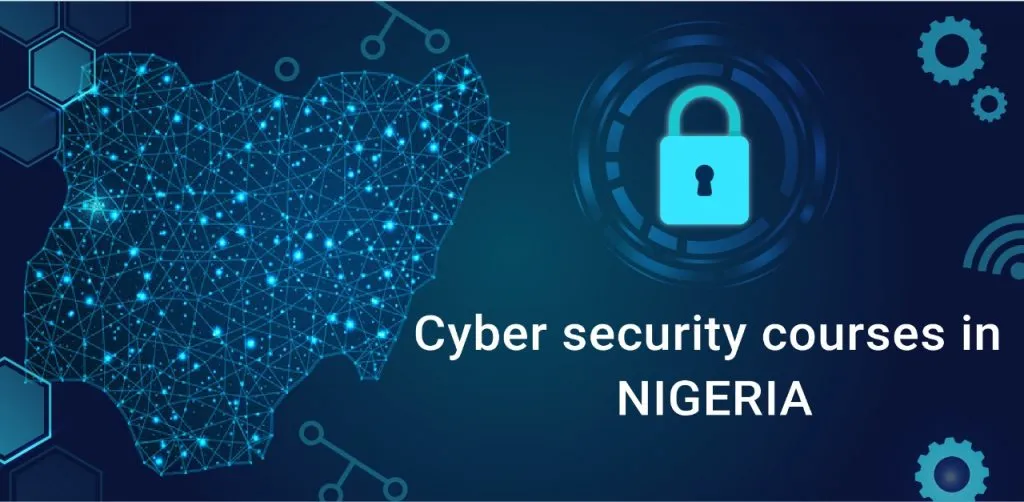Cybersecurity is crucial in today’s digital age, especially as cyber threats become more sophisticated. In Nigeria, the need for skilled cybersecurity professionals is growing rapidly as businesses strive to protect their digital assets from attacks. Whether you’re an aspiring cybersecurity expert or looking to advance your career, obtaining relevant certifications is a great way to validate your skills, improve job prospects, and increase earning potential.
Sebastine, a seasoned Information Security Engineer specializing in cybersecurity and DevOps in Nigeria, emphasizes the importance of certifications in staying ahead of emerging threats. Here are the top cybersecurity certifications Nigerian professionals should consider:
1. Certified Information Systems Security Professional (CISSP)
CISSP is one of the most prestigious and globally recognized certifications in the cybersecurity field. It validates an individual’s ability to design, implement, and manage a robust security program.
Relevance:
Ideal for experienced security professionals and managers.
Focus Areas:
Security and risk management, asset security, security architecture, identity and access management, and software development security.
Prerequisites:
Five years of experience in at least two of the CISSP domains.
Why It’s Important:
CISSP certification is essential for professionals looking to move into senior roles such as Information Security Manager or Chief Information Security Officer (CISO) in Nigeria.
2. Certified Ethical Hacker (CEH)
The CEH certification focuses on ethical hacking and penetration testing, teaching professionals how to identify and fix security vulnerabilities using the same techniques hackers use.
Relevance:
Ideal for penetration testers and security analysts.
Focus Areas:
Network scanning, system hacking, vulnerability analysis, and social engineering.
Prerequisites:
Two years of work experience in cybersecurity is recommended but not mandatory.
Why It’s Important:
With cyberattacks increasing in Nigeria, CEH-certified professionals are valuable assets to companies seeking to improve their security defenses.
3. Certified Information Security Manager (CISM)
CISM focuses on information security management, governance, and risk management. It is perfect for professionals looking to oversee an organization’s security program.
Relevance:
Suitable for IT managers and security professionals aspiring to move into management roles.
Focus Areas:
Security governance, risk management, and incident management.
Prerequisites:
Five years of experience in information security management.
Why It’s Important:
CISM is highly sought after in industries such as finance and healthcare, where strict regulatory compliance is crucial.
4. CompTIA Security+
CompTIA Security+ is an entry-level certification that covers fundamental cybersecurity skills. It’s widely recognized and serves as a stepping stone for more advanced certifications.
Relevance:
Great for entry-level roles such as Security Analyst or Network Administrator.
Focus Areas:
Threats and vulnerabilities, identity and access management, cryptography, and risk management.
Prerequisites:
No formal prerequisites, though basic IT knowledge is beneficial.
Why It’s Important:
Security+ provides a solid foundation for Nigerian professionals new to cybersecurity, offering a starting point for further specialization.
5. Certified Cloud Security Professional (CCSP)
As cloud adoption rises in Nigeria, CCSP-certified professionals are becoming increasingly valuable for ensuring cloud infrastructure and data security.
Relevance:
Suitable for cloud security professionals, IT architects, and administrators.
Focus Areas:
Cloud architecture, data security, compliance, and cloud platform security.
Prerequisites:
Five years of experience in IT, with one year in cloud security.
Why It’s Important:
CCSP certification is vital as more Nigerian businesses migrate to the cloud, requiring skilled professionals to secure cloud environments.
6. Certified Information Systems Auditor (CISA)
CISA focuses on auditing, control, and security of information systems. It is ideal for professionals responsible for ensuring compliance and evaluating IT systems.
Relevance:
Ideal for IT auditors, consultants, and compliance professionals.
Focus Areas:
IS audit process, IT governance, information systems acquisition, and operations.
Prerequisites:
Five years of professional experience in IS auditing or security.
Why It’s Important:
CISA is particularly valued in industries with regulatory demands, making it a critical certification for auditors and compliance officers in Nigeria.
7. Offensive Security Certified Professional (OSCP)
The OSCP certification is a hands-on, advanced certification that tests ethical hackers’ ability to exploit vulnerabilities in a controlled environment.
Relevance:
Ideal for penetration testers and red team specialists.
Focus Areas:
Exploitation techniques, buffer overflows, web application attacks, and network pivoting.
Prerequisites:
Networking, Linux, and scripting knowledge are highly recommended.
Why It’s Important:
OSCP is one of the most respected certifications in ethical hacking and penetration testing, proving practical skills highly valued in Nigerian businesses.
8. GIAC Security Essentials (GSEC)
GSEC certification provides a comprehensive understanding of cybersecurity principles, focusing on both theoretical and practical applications.
Relevance:
Suitable for IT professionals, security managers, and administrators.
Focus Areas:
Network security, cryptography, incident handling, and malware defense.
Prerequisites:
No formal prerequisites, though experience in IT or cybersecurity is recommended.
Why It’s Important:
GSEC helps Nigerian professionals build strong, foundational security skills, making it a valuable certification for those aiming to protect critical infrastructures.
Conclusion
With the rising demand for cybersecurity professionals in Nigeria, earning certifications is a crucial step for career growth. These certifications not only demonstrate expertise but also open doors to senior roles in cybersecurity, offering better job opportunities and salaries. From entry-level credentials like CompTIA Security+ to advanced certifications like CISSP and OSCP, Nigerian professionals can enhance their careers by acquiring the skills needed to combat evolving cyber threats.
Sebastine, a seasoned Information Security Engineer, stresses the importance of continuous learning in the ever-changing cybersecurity landscape. Whether you aim to specialize in ethical hacking, cloud security, or information system auditing, the right certification can elevate your career and help you protect valuable digital assets.

